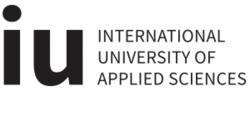Germany
GERMANY
Higher education in Germany plays a significant role in attracting international students due to its strong academic reputation, affordable tuition, and vibrant research environment. German universities offer a wide range of programs taught in English and German, providing global students with diverse educational opportunities. With world-class faculty and cutting-edge facilities, Germany equips students with high-quality knowledge and skills that are recognized across Europe and beyond.
For international students, studying in Germany opens doors to numerous opportunities throughout Europe. Germany’s central location makes it an ideal hub for exploring other European countries, enhancing cultural exchange and broadening professional networks. Many programs emphasize practical experience through internships and industry collaborations, helping students build valuable work experience. Additionally, Germany’s strong economy and demand for skilled professionals in fields like engineering, IT, healthcare, and green technologies increase graduates’ chances of finding employment within the country and across Europe.
Furthermore, Germany offers various post-study work visas, allowing graduates to stay and seek employment, further supporting their career growth. Scholarships and support services also help international students succeed academically and socially. Overall, higher education in Germany not only provides excellent academic training but also acts as a gateway for students to access wider opportunities across Europe.
-
Universities and Institutions
Out of 380 German universities, 49 are listed in Times Higher Education rankings. -
Academic Excellence
Outstanding faculty, state-of-the-art facilities, and globally recognized academic degrees offered. -
Scholarships and Bursaries
Fortunately, numerous options exist to qualify for scholarships to study in Germany. -
English-taught programs
German universities offer thousands of English-taught programs, welcoming many international students.
reasons
Dedicated to simplifying the study abroad journey with clear guidance and support, we empower you to make
informed decisions and take confident steps toward achieving your educational goals abroad.
Range of Courses
Discover numerous prestigious, highly ranked universities, a wide range of specialized programs, globally recognized degrees, and cost-effective education options for international students.
Practical education
Many universities prioritize practical learning, with numerous programs, especially at Universities of Applied Sciences, concentrating heavily on hands-on experience and real-world application of skills.
Academic Excellence
With over 380 higher education institutions offering around 20,000 programs, the country boasts 48 universities in the QS 2025 Rankings, including three within the global top 100.
part-time work
Unlike some countries, international students are allowed to work part-time during their studies, with a maximum of 20 hours per week or 120 full days per year permitted by regulations.
scholarships & grants
Scholarships, grants, and financial aid options help international students reduce expenses and make higher education more affordable and accessible across various institutions.
Upon finishing your university studies, you have a strong chance of finding a job. Your residence permit can be extended for 18 months to job hunt, with further extensions possible after employment.

Interested in meeting university delegates from the Germany?
Please register your interest in attending exclusive one-on-one meetings with the German university delegates visiting your country, or join us at one of our international education fairs.
Institution Partners
We are proud to collaborate with world-class universities offering diverse courses that empower students to nurture
their potential, pursue academic excellence, and shape a successful future with confidence.



-
Business and Management
Studies -
Computer Science and
Information Technology - Engineering (Mechanical, Electrical, Civil, etc.)
-
Medicine and Healthcare
(Nursing and Pharmacy) -
Economics and Finance
studies -
Creative Arts and
Design management
Unleash your potential — join the journey toward a brighter future.
- Explore. Plan. Find Your Fit
- Your Application Journey, Made Simple
- Keep Going — You’re Nearly There
- Your Success, Our Commitment Always
Germany has become one of the most popular study destinations for international students—and for good reason. Its world-class education system, vibrant culture, and welcoming environment offer students a unique and enriching experience.
One of the biggest advantages is affordable or tuition-free education at public universities. Unlike many other countries, Germany offers high-quality education with minimal or no tuition fees, even for international students. This makes it a financially accessible option for those seeking academic excellence.
Additionally, Germany is home to many globally recognized universities that offer a wide range of programs in English, especially at the postgraduate level. This allows students from around the world to pursue their studies without needing to be fluent in German.
Key benefits of studying in Germany include:
Strong job market: Students have access to part-time jobs and internships, and graduates often find employment in Germany or across Europe.
Cultural diversity: Germany is a multicultural society that embraces international students, making it easy to feel at home.
Central European location: Travel to other European countries is convenient and affordable.
In short, Germany offers a rare combination of academic excellence, affordability, and cultural richness—making it an ideal destination for students worldwide.
Yes, many universities and institutions in Germany offer a wide range of courses taught in English, especially at the master’s and postgraduate levels. These programs are designed to attract international students and cover fields such as engineering, business, computer science, and social sciences. Some bachelor’s programs are also available in English, though they are fewer in number. This makes it easier for students who do not speak German to access high-quality education. Additionally, many universities provide language support and preparatory courses to help international students adapt both academically and culturally. Studying in English is a popular and practical option in Germany.
Germany’s job market shows strong demand for graduates in several key fields, driven by the country’s advanced economy and technological innovation. Engineering remains one of the most sought-after areas of study. Fields such as mechanical, electrical, and automotive engineering continue to offer excellent job opportunities due to Germany’s strong manufacturing and automotive industries. Similarly, computer science and information technology are in high demand, reflecting the growing importance of digital transformation, software development, and cybersecurity in both the private and public sectors.
Business-related studies, including economics, finance, and management, also attract many students, as companies need skilled professionals to handle international trade, marketing, and corporate strategy. Healthcare and life sciences have gained importance as well, particularly with an aging population increasing the need for medical professionals, researchers, and healthcare managers.
Sustainability and environmental sciences are emerging fields with growing relevance in Germany, a country committed to green energy and environmental protection. Overall, graduates in STEM (Science, Technology, Engineering, and Mathematics) disciplines tend to have the best employment prospects, but fields related to business and healthcare also offer strong career opportunities. Choosing these areas of study can lead to rewarding jobs in Germany’s competitive and evolving job market.
To enroll in German universities where courses are taught in English, applicants must demonstrate a sufficient level of English proficiency. This requirement ensures students can effectively follow lectures, participate in discussions, and complete academic work. Generally, universities ask for internationally recognized English language test scores as proof of proficiency.
The most common tests accepted include the TOEFL (Test of English as a Foreign Language) and IELTS (International English Language Testing System). For TOEFL, a minimum score of around 80 to 100 on the internet-based test (iBT) is often required, while for IELTS, a band score of 6.0 to 7.0 is usually expected, depending on the program and institution.
Some universities may also accept other certifications such as Cambridge English exams or the Pearson Test of English (PTE). In certain cases, proof of prior education in English or an English-taught degree can substitute for standardized test scores.
It is important for prospective students to check the specific language requirements for their chosen program, as they can vary. Meeting these English proficiency standards is essential to ensure academic success and smooth communication during studies in Germany.
International students in Germany have a variety of part-time work options available to support themselves financially and gain valuable experience. Common jobs include working in cafés, restaurants, retail stores, and supermarkets, where students can find flexible hours suited to their class schedules. Many universities also offer positions in libraries, administrative offices, or research projects, which can be more related to students’ academic fields. Additionally, internships and trainee programs in companies provide opportunities for practical learning and career development. Students from non-EU countries are typically allowed to work up to 120 full days or 240 half days per year without needing a special work permit. This balance between work and study helps international students manage expenses while gaining insight into German work culture and improving language skills.

Germany FAQ
We love supporting students, answering questions, and providing accurate, up-to-date information to help them make informed, confident education decisions.

